People often ask us what the difference is between a soldering iron and a soldering gun. They’re both tools used for joining metal parts, so what’s the big deal? Well, as it turns out, there are some pretty significant differences between these two types of devices. In this article, we will take a closer look at both soldering irons and guns, and explain the pros and cons of each one. So whether you’re just starting out in the world of soldering or you’re looking to upgrade your current tool set, read on for all the information you need to make an informed decision!
What is Soldering?
Soldering is distinguished from brazing in that the temperatures required for soldering are lower than those necessary for brazing. The base metals being joined remain structurally unchanged during soldering, whereas they may be significantly altered during brazing.
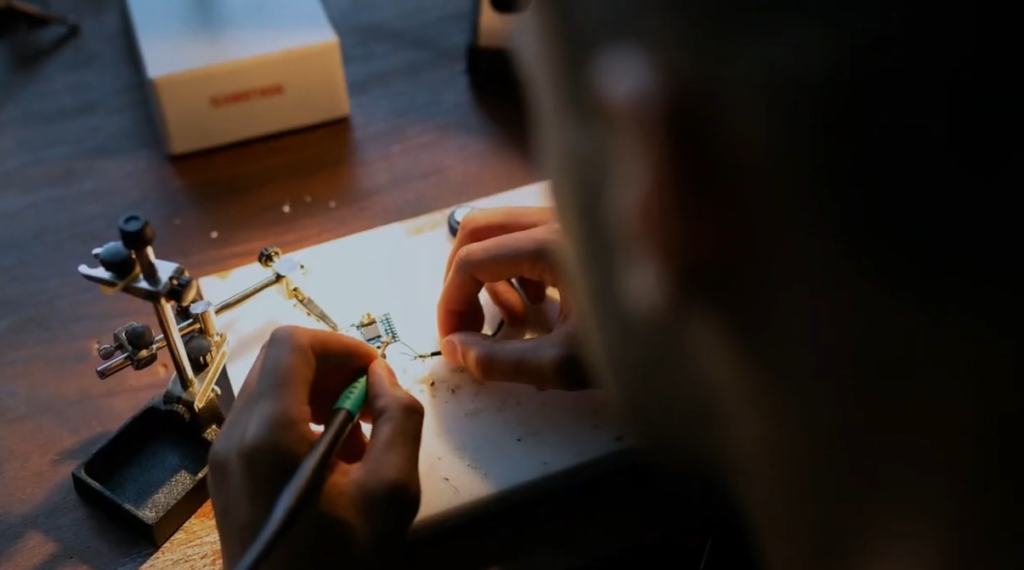
There are two main tools used for soldering: a soldering iron and a soldering gun. Both of these tools serve the same purpose, but they each have their own advantages and disadvantages that make them more or less suitable for different tasks. Let’s take a look at those! [1]
What is a Soldering Gun?
It consists of a metal tip that conducts electricity and gets very hot when in use, an insulated handle, and a trigger that turns on the power.
Soldering guns are most commonly used for larger projects where more heat is required, such as soldering copper pipes. They can also be used for smaller projects like electronics repairs.
Working principle of a soldering gun?
A soldering gun uses a trigger to heat up the element inside. This type of soldering iron is generally used for heavy-duty projects where more heat is needed, such as working with thick wires. [2], [3]
Advantages of a Soldering Gun
Now that we know how a soldering gun works, let’s take a look at some of the advantages it offers over a soldering iron.
They can deliver more power
The main advantage of a soldering gun over a soldering iron is that it can deliver more power. This means that it can heat up the metal quicker, making the process faster. In addition, a soldering gun is often easier to hold and maneuver than a soldering iron. This is especially useful when you’re working on a large project or need to solder multiple pieces together.
It’s also worth noting that soldering guns generally have a higher wattage than soldering irons, so they can handle tougher projects. If you’re not sure whether a soldering gun or iron will be better for your project, err on the side of using a gun.
They can heat up faster
One of the main advantages of a soldering gun is that it can heat up faster than a soldering iron. This is because the element in a soldering gun is larger, so it can conduct more heat. This is important when you’re working on a project that requires a lot of heat, such as when you’re soldering thick wires. Similarly, they also will cool down quickly once you’re done using them.
They are more energy efficient
Because soldering guns heat up quickly, they use less energy than soldering irons. This is especially important if you are working on a project that requires a lot of heat.
This is additionally improved by the overall fast work time of a soldering gun. Because the element is larger, it can heat up more metal at one time. This means that you won’t have to keep going over the same area to get a good solder joint. Energy efficiency is important not only for your electric bill, but also for the environment!
They are great when working with hard to reach spaces
A soldering gun is easier to use in tight spaces than a soldering iron because it doesn’t have a long handle. This makes it ideal for working on projects where you need to solder in hard to reach places.
Most soldering guns can also be operated with a single hand, which gives you more dexterity and control over the tool.
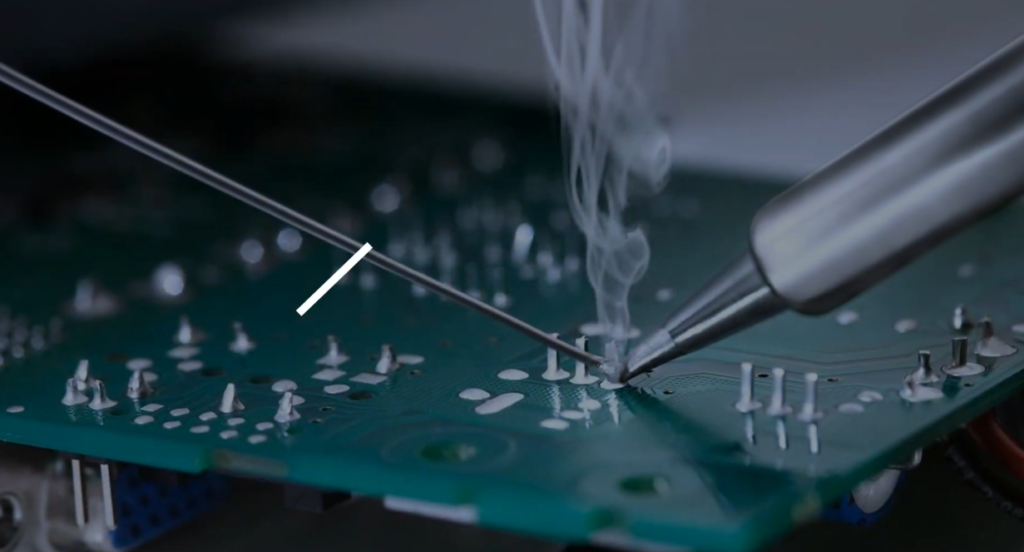
Tip versatility
Finally, solder guns usually come with tips that are already shaped for specific tasks. This can make them more versatile than irons, which often require you to purchase separate tips. [2], [3]
Disadvantages of a Soldering Gun
While there are many advantages to using a soldering gun, there are also some disadvantages.
They can be dangerous to work with
The biggest disadvantage of a soldering gun is that they can be dangerous. This is because they get very hot and can easily cause burns if you’re not careful. In addition, the trigger can be hard to control, which can make it difficult to use for delicate projects.
It’s important to always read the instructions before using a soldering gun and to be very careful when working with one. Make sure that you are wearing gloves and have a fire extinguisher on hand in case of an accident.
Similarly, it’s important to keep children and pets away from your work area when using a soldering gun as they can easily be injured by it.
They are heavy
One of the main disadvantages of a soldering gun is that they are heavier than a soldering iron. This can make them more difficult to maneuver, especially for smaller projects. In addition, the weight can make them more difficult to hold for long periods of time. If you’re going to be working on a large project, it’s important to take breaks often to avoid fatigue.
Finally, the weight can also make them more difficult to control. This is especially true if you’re not used to using a soldering gun. It may take some practice to get the hang of using one!
They are not suitable for smaller projects
Another con of using a soldering gun is that they’re not suitable for smaller projects. This is because the tips are larger and the heat is more intense, which can damage delicate components. In addition, the process is generally slower than using a soldering iron.
If you only need to solder small components, such as wires or circuit boards, then a soldering iron will be a better choice.
Soldering guns are also not recommended for beginners because they require more skill to use. If you’re just starting out, we recommend using a soldering iron until you get the hang of it.
Tip durability
Last downside of a soldering gun is that the tips tend to be less durable than those on a soldering iron. This is because they’re made of copper, which is a softer metal. As a result, they can wear down quickly if you use them for projects that require a lot of heat.
Of course, this isn’t an issue if you only plan on using your soldering gun for occasional projects. But if you plan on using it frequently, it’s something to keep in mind.
So, while solder guns have some advantages, there are also some disadvantages to consider before using one on your next project. [2], [3]
What is a Soldering Iron?
It consists of a metal tip that gets hot when an electric current passes through it and melts the solder, which then flows onto the connection to be made.
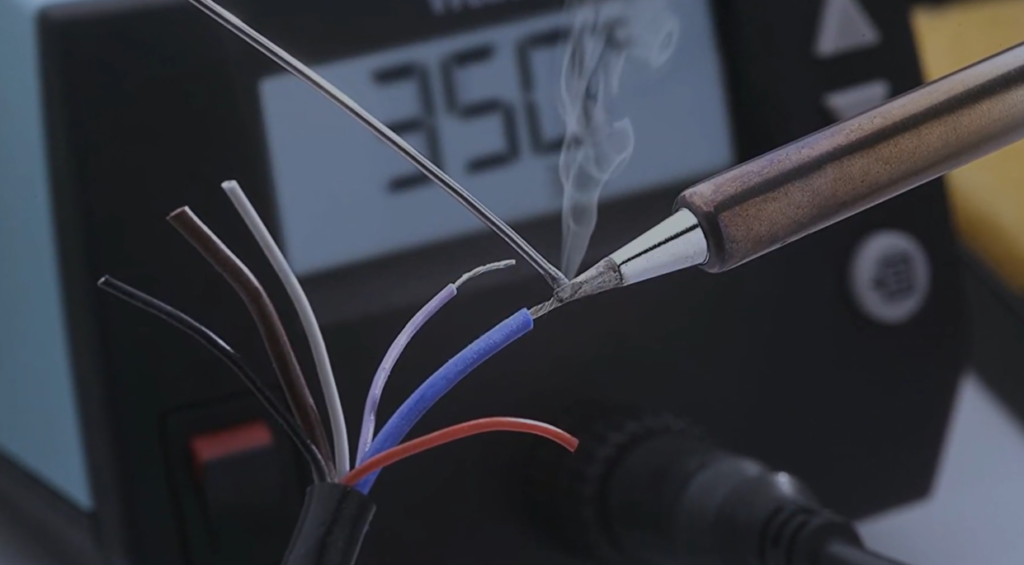
How Does a Soldering Iron Work?
A soldering iron works by heating up the metal tip to a high temperature. This melts the solder, which then creates a connection.
The first thing you need to do when using a soldering iron is to apply some flux to the area that needs to be soldered. Flux helps the solder flow better and also prevents oxidation (rust) on the metals being joined.
Once the flux is applied, you can apply heat to the area with the soldering iron. You’ll want to hold the tip of the iron against both pieces of metal for a few seconds before applying any solder. This will help ensure that both pieces are at the same temperature and will help the solder flow evenly.
Once the area is heated, you can touch the solder to the joint and it should flow onto the connection. You’ll want to apply enough solder to create a good connection, but not so much that it creates a “blob” on the surface.
Once you’ve got a good connection, you can remove the heat and allow the joint to cool. You may need to apply some additional flux or heat if there are any stubborn areas that don’t seem to be taking the solder. [1], [2], [3]
Advantages of a Soldering Iron
We have already covered the pros and cons of a soldering gun, so now let’s dive into the advantages of a soldering iron.
They are ideal for smaller projects
While soldering irons don’t produce as much heat as soldering guns, they’re still more than adequate for most electronics projects. This makes them ideal for smaller projects where a soldering gun might be overkill.
They’re also much easier to control than a soldering gun, so you’re less likely to accidentally damage sensitive components. If you only do occasional soldering or you’re working on delicate electronics projects, a soldering iron is probably the best tool for the job.
Soldering irons are a great option for beginners since they’re relatively easy to use and don’t require as much experience as a soldering gun. If you’re just starting out with electronics, a soldering iron is a good place to start.
They are lightweight and portable
Soldering irons are also much lighter and more portable than soldering guns. This means that you can take them with you wherever you go, which is ideal for electronics enthusiasts who are always on the move. They are also relatively inexpensive, which makes them a great option for those on a budget.
Variety of options
The most obvious advantage of a soldering iron is the sheer variety of options that are available. You can find an iron to suit any budget, and there are many different tip shapes and sizes available to help you with whatever task you need to complete.
If you’re just starting out, it’s recommended that you get a “pencil-style” soldering iron as they are relatively inexpensive and easy to use. As you become more experienced, you may want to invest in a more expensive iron with features such as adjustable temperature control or a digital display.
Another advantage of the vast range of options available is that you can find an iron that comes with interchangeable tips. This means that you can buy one iron and have the ability to use it for a variety of different tasks, which is great if you need to do a lot of soldering or if you’re working on a delicate project.
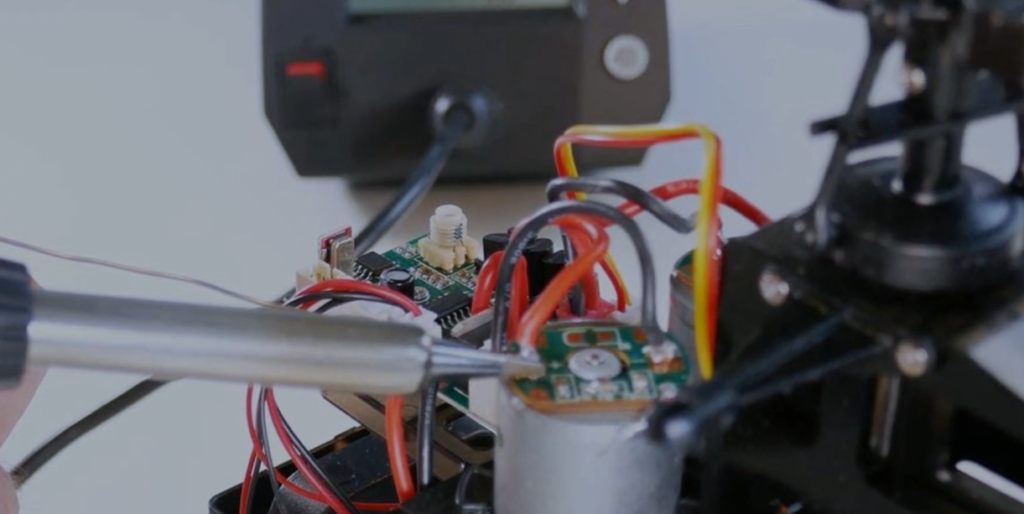
They keep heat well
The soldering irons have a better thermal conductivity. In simple words, they give and hold the heat for a longer time as compared to the soldering guns. While they may take longer to heat up, when they actually do, they can maintain the temperature for a longer period of time. [2], [3]
Disadvantages of soldering irons
Now that we’ve covered the advantages of a soldering iron, let’s take a look at the disadvantages. Just like any tool, there are some drawbacks that you should be aware of before making a purchase.
They aren’t very powerful
One of the biggest disadvantages of a soldering iron is that they simply aren’t as powerful as a soldering gun. This means that they’re not ideal for larger projects or for working with thicker wires.
If you need to solder something quickly, a soldering gun is going to be the better option since it can heat up the joint much faster. If you’re working on a large project or you need to solder thick wires, a soldering iron is probably not going to be powerful enough.
They take a while to heat up
This leads us to another negative of a soldering iron, that they can take a while to heat up. This can be frustrating if you’re in the middle of a project and you need to solder something quickly.
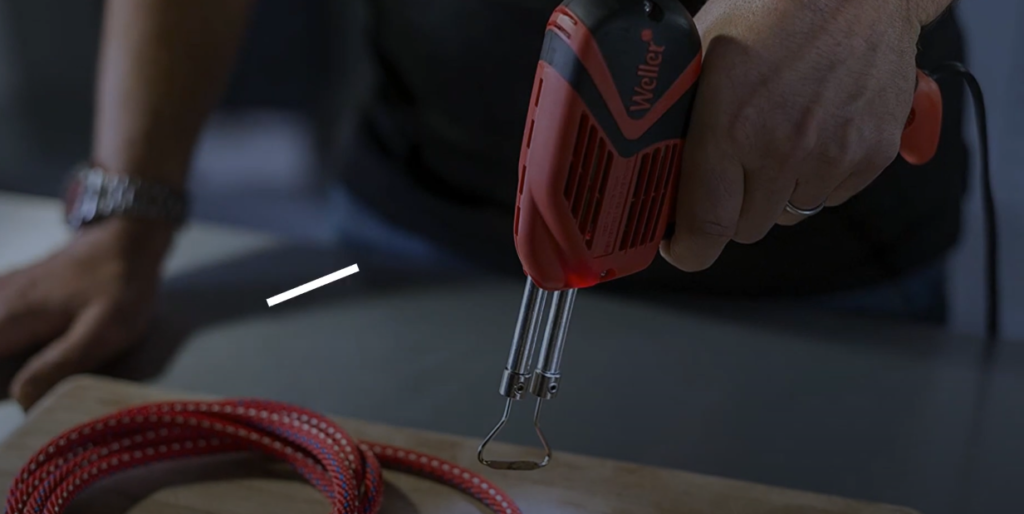
They aren’t as energy efficient
Because soldering irons are slow to heat up, they use more energy than soldering guns. This means that they’ll ultimately cost you more money to operate over time. If you’re looking for an energy-efficient option, a soldering gun is probably the way to go. [2], [3]
FAQ
Can you solder with a soldering gun?
Yes, you can solder with a soldering gun. However, it is not the preferred method and takes some getting used to. It is much easier to solder with a soldering iron.
Solder guns are designed for heavy duty applications such as welding together two pieces of metal. They put out a lot of heat and can be difficult to control. If you are just starting out, we recommend using a soldering iron instead.
Can you use a soldering iron instead of a heat gun?
The short answer is yes, you can use a soldering iron instead of a heat gun. However, there are some limitations to consider. First, soldering irons typically have a much smaller tip than heat guns, which can make them difficult to use for larger projects. Second, soldering irons generally don’t get as hot as heat guns, so they may not be able to solder all types of materials. Finally, soldering irons typically have a shorter power cord than heat guns, so you’ll need to be closer to an outlet when using one.
What is a soldering gun used for?
A soldering gun is a device that produces heat to melt solder so it can flow into the joint between two workpieces.
Soldering guns are most commonly used in electronics applications, where they are used to solder electronic components onto circuit boards. However, they can also be used for other applications such as joining metal pipes or jewelry making.
Can you solder metal with a soldering gun?
Yes, you can solder metal with a soldering gun. In fact, many people prefer to use a soldering gun for metal because it heats up faster and is easier to control.
However, there are some things to keep in mind when using a soldering gun on metal. First, make sure that the tip of the gun is clean and free of any debris. Second, apply the solder quickly and evenly to avoid any hot spots. Finally, be sure to use a lower temperature setting on the gun to avoid damaging the metal.
Useful Video: Soldering Iron vs Soldering Gun
Conclusion
Both soldering irons and guns have their own advantages and disadvantages. In the end, it all comes down to what you need to use it for. Overall, soldering guns are best suited for large projects that require a lot of heat. If you’re working on a smaller project, or one that requires more precision, you’re better off using a soldering iron.
The main advantage of using a soldering gun is that it can generate more heat than a soldering iron, so it can be useful for working with thicker pieces of metal. Soldering irons are a very useful tool for smaller projects that require more precision and control.
Thanks for reading! I hope this article helped clear up any confusion you had about the difference between a soldering iron and a soldering gun. If you have any questions, feel free to leave a comment below.
References
- https://www.twi-global.com/technical-knowledge/faqs/what-is-soldering
- https://www.electronicshub.org/soldering-iron-vs-soldering-gun/
- https://weldingmastermind.com/soldering-gun-vs-iron-which-is-the-better-choice-for-you/




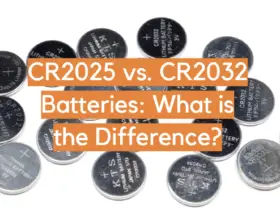
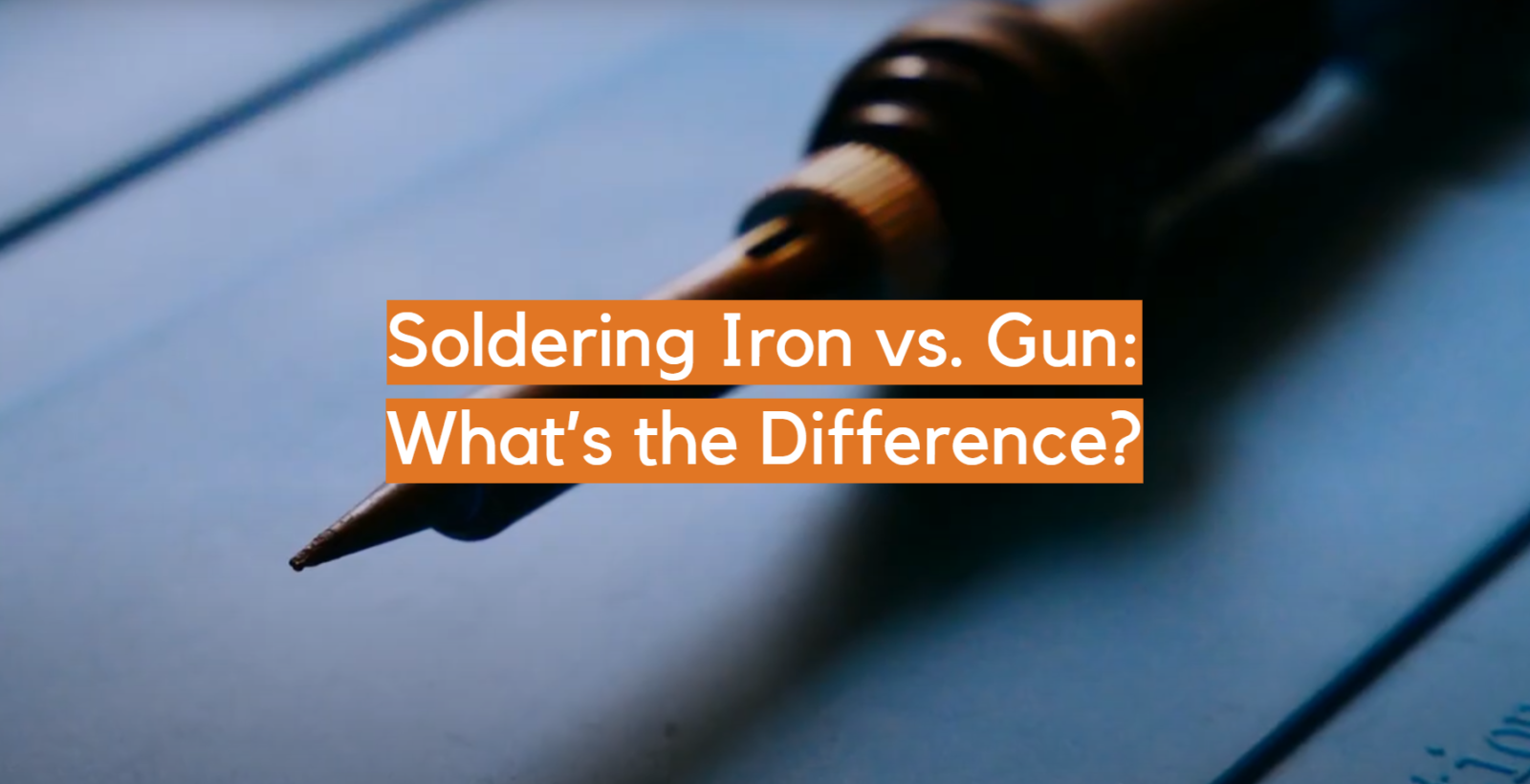

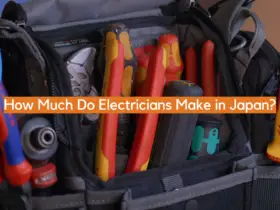


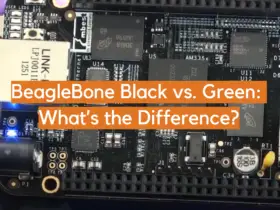
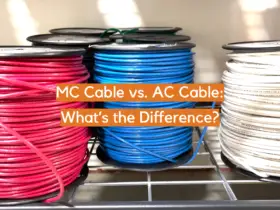
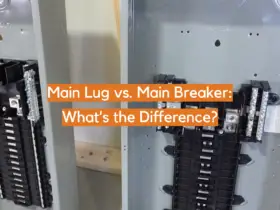

Leave a Reply